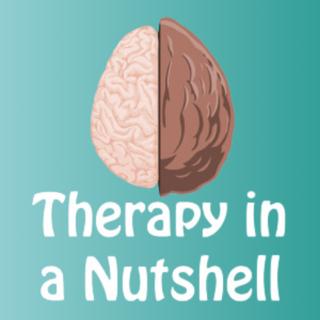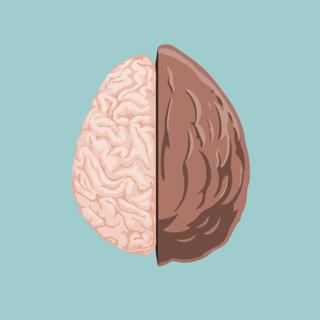
Quick Coping Skill for Anxiety: Locus of Control Find a Way #WithMe
Here’s a quick activity that you can do to cope with anxiety and restore a sense of safety and calm, I do it all the time with my clients in session and you can feel a noticeable difference almost immediately. This activity is short and simple, but it can really help decrease anxiety or better cope with anxiety. A big part of anxiety and stress is trying to figure out what you should be doing about certain problems. I mean that’s what worry is, right, it’s thinking about a problem over and over to see if you can find another option or another solution. Coping with Anxiety is all about understanding your locus of control, but the important part is that you draw it- because that does something to help the brain clarify and calm down more than just thinking. Sign up for my newsletter: https://www.therapynutshell.com Thanks BetterHelp for sponsoring the video: BetterHelp- Professional, Affordable Online Counseling starting at around $65 a week https://www.betterhelp.com/therapyina... Learn more in one of my in-depth mental-health courses: https://courses.therapyinanutshell.com/?utm_source=podcast&utm_medium=12222020 Check out my favorite books for mental health: https://kit.co/TherapyinaNutshell/bes... Music licensed from www.Bensound.com or Artlist.io Images from Freepik.com (premium license), Pixabay, or Wikimedia commons Therapy in a Nutshell, and the information provided by Emma McAdam, is solely intended for informational and entertainment purposes and is not a substitute for advice, diagnosis, or treatment regarding medical or mental health conditions. Although Emma McAdam is a licensed marriage and family therapist, the views expressed on this site or any related content should not be taken for medical or psychiatric advice. Always consult your physician before making any decisions related to your physical or mental health. If you are in crisis please contact the National Suicide Prevention Hotline at: https://suicidepreventionlifeline.org/ or 1-800-273-TALK (8255), or your local emergency services. Copyright Therapy in a Nutshell, LLC
22 Des 20209min

Seasonal Affective Disorder and Winter Blues- Treatment Options-Light Therapy for SAD
Seasonal Affective Disorder is a type of depression that is associated with changes in the seasons. (It also has the clever acronym, SAD). Or it’s called the Winter Blues. These symptoms often start in the fall and persist into the winter. With Winter SAD people feel less energetic and more moody, with symptoms similar to depression. It can look like: Losing interest in activities you once enjoyed, feeling sluggish, tired, or low energy, having problems with sleep, feeling hopeless, weight gain, or appetite changes and specifically in the winter, cravings for more food, especially high carb food. Around 20 percent of Americans (That’s like 65 million people) experience seasonal affective disorder. Now this disorder impacts people who are closer to the poles, because the amount of sunlight varies more dramatically with the seasons there, than near the equator. Looking for Affordable Online Counseling? My sponsor BetterHelp connects you to a licensed professional for $65/week. Try it now for 10% off https://betterhelp.com/therapyinanutshell Learn more in one of my in-depth mental health courses: https://courses.therapyinanutshell.com/?utm_source=podcast&utm_medium=12212020 Support my mission on Patreon: https://www.patreon.com/therapyinanutshell Sign up for my newsletter: https://www.therapynutshell.com Check out my favorite self-help books: https://kit.co/TherapyinaNutshell/best-self-help-books Therapy in a Nutshell, and the information provided by Emma McAdam, is solely intended for informational and entertainment purposes and is not a substitute for advice, diagnosis, or treatment regarding medical or mental health conditions. Although Emma McAdam is a licensed marriage and family therapist, the views expressed on this site or any related content should not be taken for medical or psychiatric advice. Always consult your physician before making any decisions related to your physical or mental health. If you are in crisis please contact the National Suicide Prevention Hotline at: https://suicidepreventionlifeline.org/ or 1-800-273-TALK (8255), or your local emergency services. Copyright Therapy in a Nutshell, LLC
21 Des 202015min

People Pleasing-Are you a People Pleaser? And How to Stop Being a People Pleaser
People-pleasing is when you feel like you have to change yourself to be loved or accepted by others. People pleasing is especially common among women, but anyone could be a people pleaser. When you are stuck in people pleasing you may feel tired, overwhelmed, exhausted, or resentful. There are different types of people pleasers- the perky, the pouty, and the perplexed people pleaser. If you'd like to learn more about overcoming people pleasing and perfectionism, check out Carly's online course: https://therapyinanutshell.teachable.com/p/ppp Thanks BetterHelp for sponsoring the video: BetterHelp- Professional, Affordable Online Counseling starting at around $65 a week https://www.betterhelp.com/therapyinanutshell Learn more in one of my in-depth mental health courses: https://courses.therapyinanutshell.com/?utm_source=podcast&utm_medium=12172020 Support my mission on Patreon: https://www.patreon.com/therapyinanutshell Sign up for my newsletter: https://www.therapynutshell.com Check out my favorite self-help books: https://kit.co/TherapyinaNutshell/best-self-help-books Therapy in a Nutshell, and the information provided by Emma McAdam, is solely intended for informational and entertainment purposes and is not a substitute for advice, diagnosis, or treatment regarding medical or mental health conditions. Although Emma McAdam is a licensed marriage and family therapist, the views expressed on this site or any related content should not be taken for medical or psychiatric advice. Always consult your physician before making any decisions related to your physical or mental health. If you are in crisis please contact the National Suicide Prevention Hotline at: https://suicidepreventionlifeline.org/ or 1-800-273-TALK (8255), or your local emergency services. Copyright Therapy in a Nutshell, LLC ---- Music licensed from www.Bensound.com or Artlist.io Images from Freepik.com (premium license), Pixabay, or Wikimedia commons
17 Des 202027min

Can You Be Successful if you Experience Mental Illness? OCD, John Green and Turtles all the Way Down
Can you be successful with OCD? John Green is the famous bestselling author of "The fault in our stars" "Looking for Alaska" and "Turtles all the way down. He's successful, smart, deep, and he also has OCD. John Green's book "Turtles all the way down" is a fictional book about a girl who has OCD- Obsessive-compulsive disorder- and how she deals with life. Sign up for my newsletter: www.therapynutshell.com Thanks to BetterHelp for sponsoring the video: BetterHelp- Professional, affordable, online Counseling starting at around $65 a week https://betterhelp.com/therapyinanuts... Learn more in one of my in-depth mental-health courses: https://courses.therapyinanutshell.com/?utm_source=podcast&utm_medium=12152020 Check out my favorite books for mental health: https://kit.co/TherapyinaNutshell/bes... Music licensed from www.Bensound.com or Artlist.io Images from Freepik.com (premium license), Pixabay, or Wikimedia commons Therapy in a Nutshell, and the information provided by Emma McAdam, is solely intended for informational and entertainment purposes and is not a substitute for advice, diagnosis, or treatment regarding medical or mental health conditions. Although Emma McAdam is a licensed marriage and family therapist, the views expressed on this site or any related content should not be taken for medical or psychiatric advice. Always consult your physician before making any decisions related to your physical or mental health. If you are in crisis please contact the National Suicide Prevention Hotline at: https://suicidepreventionlifeline.org/ or 1-800-273-TALK (8255), or your local emergency services. Copyright Therapy in a Nutshell, LLC
15 Des 20206min

Anxious but you don’t know why?
In part 3 of Rewiring the Anxious Brain, I talk about what to do when you don't know why you're anxious but you don't know why. After making my video on the Anxiety cycle and how to rewire your brain to be less anxious, I got a lot of questions, but one of the most common ones was "I don't know why I'm anxious" What do I do about that? In this video, I discuss 2 reasons why you might be anxious and you don't know why, and what you can do about anxiety. I discuss the principle of neuroplasticity and how you can actually rewire your brain to be less anxious. Looking for affordable online counseling? My sponsor, BetterHelp, connects you to a licensed professional for $65/week. Try it now for 10% off https://betterhelp.com/therapyinanuts... Support my mission on Patreon: https://www.patreon.com/therapyinanut... Learn more in one of my in-depth mental health courses: https://courses.therapyinanutshell.com/?utm_source=podcast&utm_medium=12082020 Sign up for my newsletter: www.therapynutshell.com Therapy in a Nutshell, and the information provided by Emma McAdam, is solely intended for informational and entertainment purposes and is not a substitute for advice, diagnosis, or treatment regarding medical or mental health conditions. Although Emma McAdam is a licensed marriage and family therapist, the views expressed on this site or any related content should not be taken for medical or psychiatric advice. Always consult your physician before making any decisions related to your physical or mental health. If you are in crisis please contact the National Suicide Prevention Hotline at: https://suicidepreventionlifeline.org/ or 1-800-273-TALK (8255), or your local emergency services. Copyright Therapy in a Nutshell, LLC ---- Music licensed from www.Bensound.com or Artlist.io Images from Freepik.com (premium license), Pixabay, or Wikimedia commons Images from wsj.com, thedailytexan,
8 Des 202019min

Escaping the Anxiety/Burnout/Depression Cycle
I’m currently working with a couple of clients who all get stuck in this pattern of anxiety, and then they try to keep super busy to avoid feeling anxious, and then they burn out and end up depressed. I’ve seen this pattern in my family and in a lot of my clients, so from what I can tell it’s a pretty common way that anxiety turns into depression. In this video, you’re going to learn how to identify and replace this pattern with a more helpful, sustainable approach. So let’s take a look at each of those stages. Thanks BetterHelp for sponsoring the video: Looking for affordable online counseling? My sponsor, BetterHelp, connects you to a licensed professional for $65/week. Try it now for 10% off https://betterhelp.com/therapyinanuts... Support my mission on Patreon: https://www.patreon.com/therapyinanut... Learn more in one of my in-depth mental health courses: https://courses.therapyinanutshell.com/?utm_source=podcast&utm_medium=12012020 Sign up for my newsletter: www.therapynutshell.com Therapy in a Nutshell, and the information provided by Emma McAdam, is solely intended for informational and entertainment purposes and is not a substitute for advice, diagnosis, or treatment regarding medical or mental health conditions. Although Emma McAdam is a licensed marriage and family therapist, the views expressed on this site or any related content should not be taken for medical or psychiatric advice. Always consult your physician before making any decisions related to your physical or mental health. If you are in crisis please contact the National Suicide Prevention Hotline at: https://suicidepreventionlifeline.org/ or 1-800-273-TALK (8255), or your local emergency services. Copyright Therapy in a Nutshell, LLC ---- Music licensed from www.Bensound.com or Artlist.io Images from Freepik.com (premium license), Pixabay, or Wikimedia commons Images from wsj.com, thedailytexan
1 Des 20209min

The Healing Power of Gratitude to Change the Brain
Thanks BetterHelp for sponsoring the video: BetterHelp- Professional, Affordable Online Counseling starting at around $65 a week https://www.betterhelp.com/therapyinanutshell Gratitude helps with anxiety by interrupting the cycle of constantly scanning for dangers. When we are in fear or scarcity mode, our brain turns on the FFF response, but when we think of gratitude, research shows that the hippocampus and amygdala are activated, these parts of the brain aid in emotion regulation and can help turn on that feeling of safety, contentment, and calm. That feeling of abundance. Basically gratitude practice is a way to regulate the autonomic nervous system, gratitude can turn on that parasympathetic response and reduce stress hormones like cortisol. When we regulate the nervous system, that has a big impact on reducing the symptoms of depression and anxiety. Learn more in one of my in-depth mental-health courses: https://courses.therapyinanutshell.com/?utm_source=podcast&utm_medium=11262020 Sign up for my newsletter: https://www.therapynutshell.com Check out my favorite books for mental health: https://www.therapynutshell.com/post/my-favorite-self-help-books Music licensed from www.Bensound.com or Artlist.io Images from Freepik.com (premium license), Pixabay, or Wikimedia commons Therapy in a Nutshell, and the information provided by Emma McAdam, is solely intended for informational and entertainment purposes and is not a substitute for advice, diagnosis, or treatment regarding medical or mental health conditions. Although Emma McAdam is a licensed marriage and family therapist, the views expressed on this site or any related content should not be taken for medical or psychiatric advice. Always consult your physician before making any decisions related to your physical or mental health. If you are in crisis please contact the National Suicide Prevention Hotline at: https://suicidepreventionlifeline.org/ or 1-800-273-TALK (8255), or your local emergency services. Copyright Therapy in a Nutshell, LLC
26 Nov 202011min

Perception Creates Your Reality- Change How You Feel about People with this Relationship Skill
Your perception creates your reality. You can actually change how you feel about people by intentionally deciding to change your perception of them. In this video from my Relationship skills Course, I teach how you can fall back in love by changing your perception of another person, helping you feel more warmly towards them. Take my Relationship Skills course now for $147: https://courses.therapyinanutshell.com/relationship-skills?utm_campaign=Nov%2024,%202020&utm_medium=Description&utm_source=podcast Sign up for my Newsletter: www.therapynutshell.com Thanks to BetterHelp for sponsoring the video: BetterHelp- Professional, Affordable Online Counseling starting at around $65 a week https://betterhelp.com/therapyinanuts... Learn more in one of my in-depth mental-health courses: https://courses.therapyinanutshell.com/?utm_source=podcast&utm_medium=11242020 Music licensed from www.Bensound.com or Artlist.io Images from Freepik.com (premium license), Pixabay, or Wikimedia commons Therapy in a Nutshell, and the information provided by Emma McAdam, is solely intended for informational and entertainment purposes and is not a substitute for advice, diagnosis, or treatment regarding medical or mental health conditions. Although Emma McAdam is a licensed marriage and family therapist, the views expressed on this site or any related content should not be taken for medical or psychiatric advice. Always consult your physician before making any decisions related to your physical or mental health. If you are in crisis please contact the National Suicide Prevention Hotline at: https://suicidepreventionlifeline.org/ or 1-800-273-TALK (8255), or your local emergency services. Copyright Therapy in a Nutshell, LLC
24 Nov 20209min






















